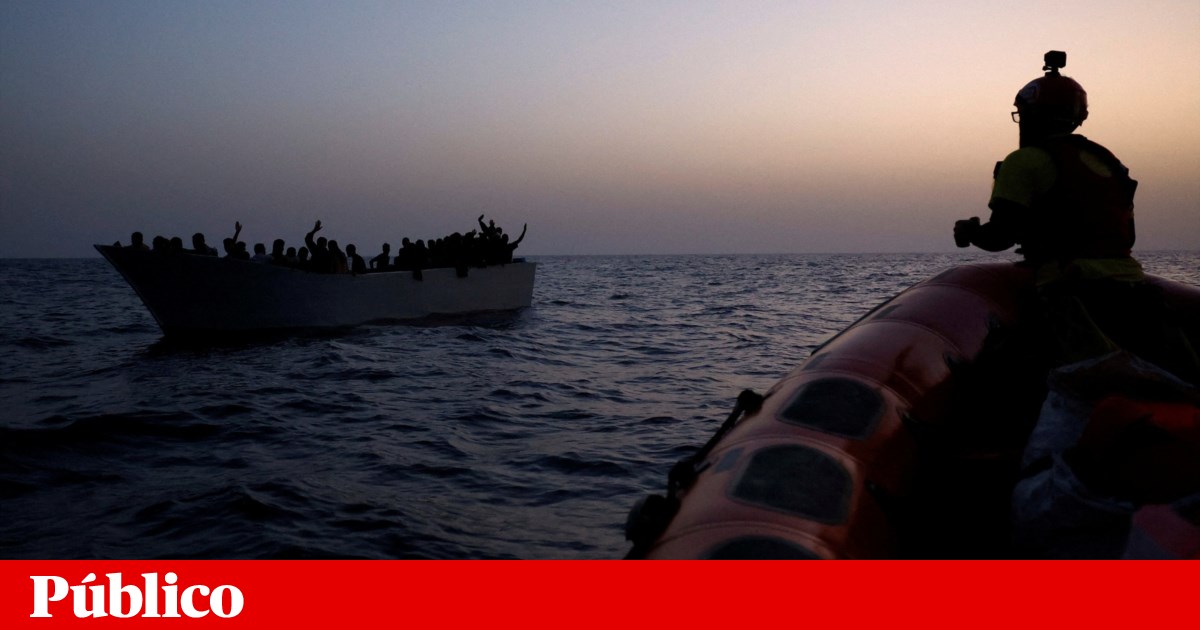In more than a month adrift, 56 people died of starvation on a boat eventually rescued off the coast of Cape Verde, which was originally carrying 101 people, the Red Cross revealed in a report that Lusa had access to.
“Until they were found, they lay adrift for 41 days, and from the seventh day their supplies ran out, claiming the lives of more than 50% of the population who were thrown into the sea by the decomposition of the corpses,” the document details, quoting the captain of a fishing boat who rescued the survivors and listened to them. .
This is the first known report of anyone arriving alive on the island of Sal, after the ship departed from northern Senegal, from the port of Saint Louis, in the border region with Mauritania, on July 7, with 101 people on board. The report says most of them are from Senegal and two are from Guinea-Bissau.
Data on the place and date of departure differs from that released by the Senegalese government this Wednesday, which indicated a departure on July 10 from Vas Bouy, a coastal town halfway between Dakar and Saint Louis.
Other statements from the Red Cross are consistent with the official information that has been released: a fishing vessel flying the Spanish flag (a flag indicating nationality) docked in the port of Palmira on the island of Sal, with 45 African migrants on board, on Tuesday. , approx noon.
The canoe from which they were taken was found 150 miles (241 kilometers) from the island.
“Out of the 45 migrants, seven who looked like dead bodies arrived and were immediately taken to the mortuary of the Ramiro Alves Figuera Regional Hospital for identification purposes. There are four teenagers alive between the ages of 12 and 16.”
The end of a tragic month across the Atlantic began to take shape on Monday.
The dinghy was sighted on August 14 at around 7:00 AM local time (9:00 AM in Lisbon) and the fishing boat was allowed to tow it to a Cape Verde port, given its proximity. However, with the tide, the anchors began to loosen and the crew decided to take the migrants to the fishing grounds.
He added, “There are 39 survivors and six bodies, one of whom died on his way to the port of Palmyra.”
The Red Cross also reports on the work deployed by a multidisciplinary team of Cape Verdean authorities: it was in the port to receive migrants, with health services, and to set up several tents, where they provided medical care.
A total of 16 people required more care due to their dehydrated condition, they were immediately sent to the regional hospital and the rest were welcomed into a school where housing was improvised.
Senegal is a country of origin and transit for migratory flows to Europe, whose Atlantic route has gained strength again with the closure of borders due to the COVID-19 pandemic and the associated economic crisis.
Cape Verde’s health minister, Philomena Gonçalves, on Tuesday called for a larger international ceremony to stop migrant deaths at sea.
In November, Cape Verde and Senegal expressed their willingness to strengthen cooperation and work with other African countries to combat illegal immigration, days after a ship carrying 66 Senegalese migrants sank on the island of Sal.
In January, another boat arrived at Boa Vista with 90 African migrants on board and two had already died.
At that time, the President of Cape Verde, José María Neves, demanded that conditions be created to prevent the arrival of migrants and strengthen their monitoring.

“Hardcore alcohol maven. Hipster-friendly analyst. Introvert. Devoted social media advocate.”

